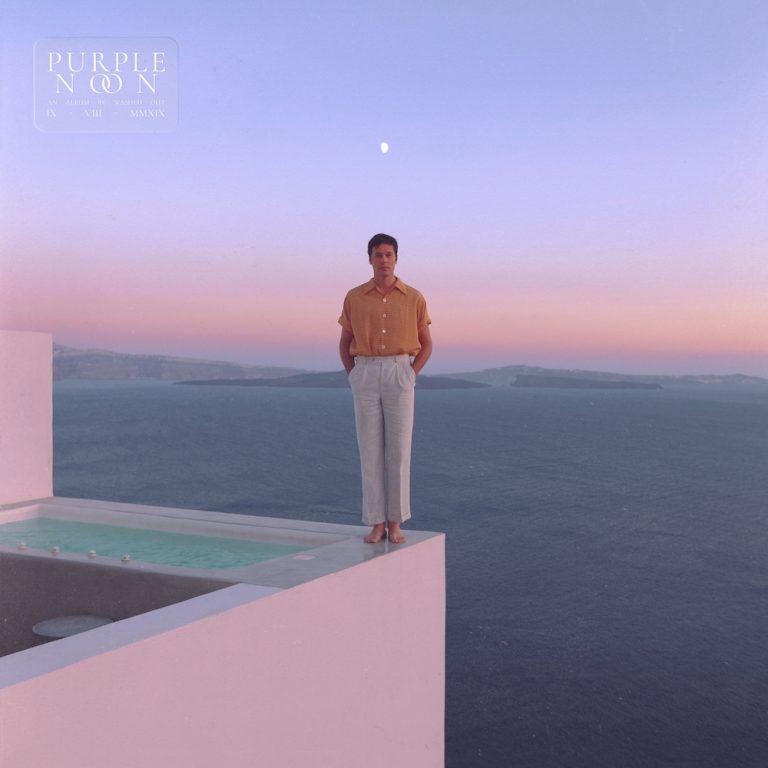Ernest Greene practically invented chillwave, the late-2000s hazy synth genre that cultivated many one-off albums from dozens of artists. As Washed Out, Greene attracted attention for his minimal but expansive EP Life of Leisure in 2009, with the golden-crisp lead single “Feel It All Around” delivering his breakthrough and becoming the opening tune for the IFC comedy show Portlandia. The Washed Out project bloomed from there and “Feel It All Around” filled clubs in every sector.
Since that EP, Greene’s primary focus hasn’t so much been to evolve, but rather make his sound roomier. Over the course of his last three albums he’s attempted to populate these chill landscapes with echoing caverns, as on 2013’s Paracosm, which followed on from the gloriously loving mountains of his 2011 debut LP Within and Without. But after garnering much success with this formula, 2017’s visual album Mister Mellow was a soulless endeavor, one that did nothing to justify its existence in an already overcrowded list of “visual” albums. It’s considered somewhat non-canonical since it was released by Stones Throw Records and not Greene’s home label of Sub Pop.
So with his latest album Purple Noon – the actual follow-up to Paracosm since it’s back on Sub Pop – the expectations are sadly low, but Purple Noon is actually a pretty good rebound record. It feels like a relaxing trip home after a sporadic vacation turned bad.
This time around, the Washed Out project opts for a balancing act by coupling thrusting beats and driving them through blurry synths. This is evident from opener “Too Late”, as Greene’s cavernous and warm vocals add that extra touch of sweetness to the deal, thus returning Washed Out’s sound to something that would perfectly fit into ‘summer vibes’ playlists on streaming services.
There’s nothing to mistake Purple Noon for being something other than a Washed Out record either, with the exception for the “washing out” of vocals on tracks like “Paralyzed”, which strains Greene’s vocals almost indiscernibly. In fact, a majority of Purple Noon could be misheard as gibberish being run through a vocoder, since hardly any of Greene’s vocals are decipherable. This is something he has done previously, but here it feels way more heightened and less successful.
Washed Out’s early catalogue is surprisingly robust, so to hear Greene pushing even further from his core is disappointing. The “mumble-wave” is even further implemented on “Time to Walk Away”, and while it doesn’t make these tracks unlistenable, it does remove Greene from his own music and steers it into an almost-shoegaze-like atmosphere. This kind of technique has been used successfully by the likes of Bradford Cox on his solo project Atlas Sound, but here it’s just a fly-in-your-soup type of dilemma.
But whatever the album lacks in memorable lyrics it makes up for in sonic pleasures. Greene pulls out gorgeously arranged strings on the bridge of “Game of Chance”; he’s always had a knack for this kind of purified sound, and he pairs it excellently with “ooooh”s to great impact, yielding the feeling of floating down a river in the mid-summer warmth. Album closer “Haunt” features some of Greene’s most nostalgic work, harking back to his early 2010s sound of Within and Without – it’s comforting, even if it’s a revisit.
Greene’s penchant for writing these enormous cloud-filled spaces is really what draws people to his sound. He has this impeccable talent when it comes to picking the right sounds to liquidize his voice, even if that tends to muddy what he’s actually singing. It’s a shame that this time around Greene wants to distance himself from his two best records and early EPs, but Purple Noon is nonetheless an improvement over Mister Mellow because it brings most of what we enjoyed about his early work back – even if it’s not as heavily emphasized.

